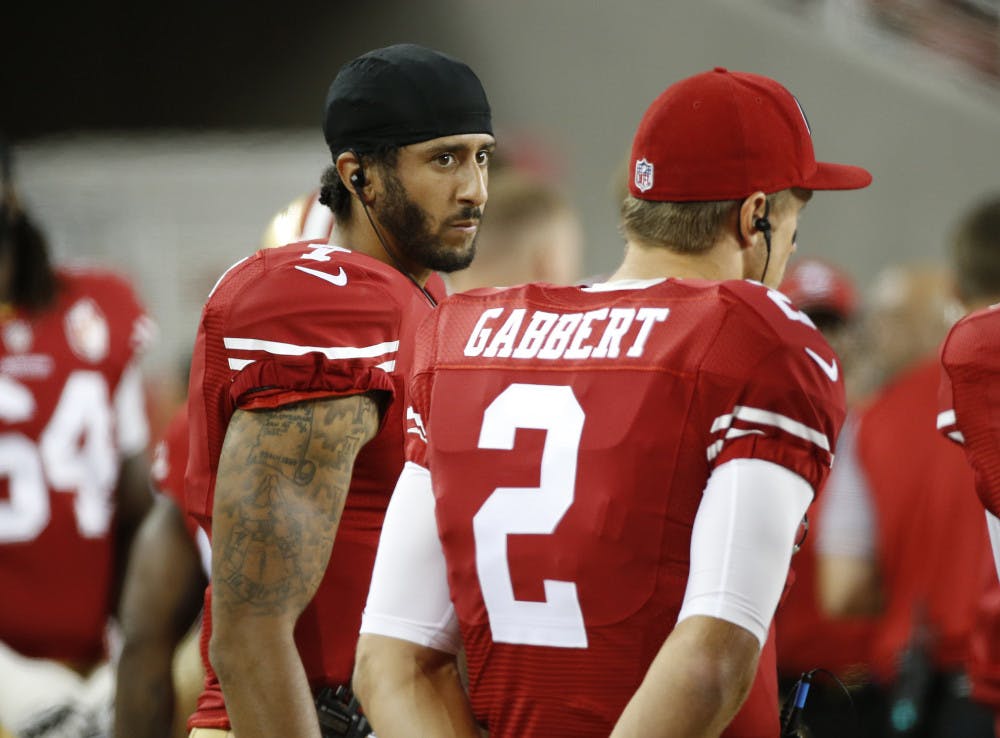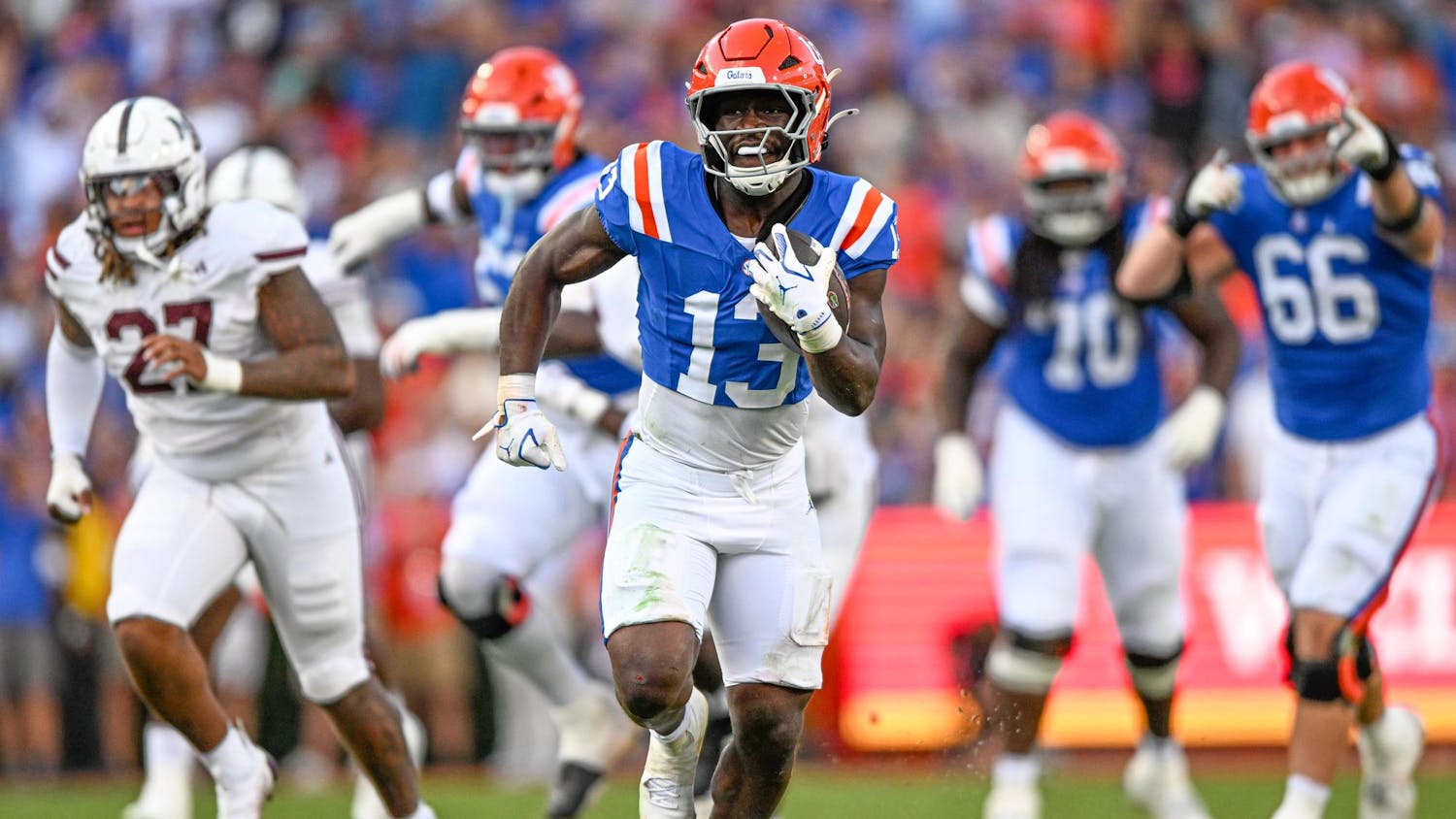I usually hate these types of columns.
They come off as whiny and self-absorbed, as if I expect you, the reader, to feel sorry for me. To feel sorry for the inconveniences I deal with at my workplace when I really don’t care about what happens at yours.
The type of column I’m talking about? The ones where the media rants about the problems it faces at work. The unnecessary restrictions sports journalists deal with day to day. The way sports teams and organizations are ghastly afraid of reporters having free reign to interview and tell stories about their players, as if this is the federal government and we might accidentally stumble upon their secret launch codes.
But, if you’re reading this, you’re likely somewhat invested in sports journalism, and you care about the stories that result from the media’s reporting. So excuse my self absorption just a little bit longer.
Recently, Richard Deitsch of Sports Illustrated wrote a story titled “The strangest restrictions NFL teams impose on reporters.” In it, Deitsch compiled anecdotes from respected sports journalists around the nation, all of whom cite examples of how the NFL teams they cover routinely and unfathomably make it more difficult for the media to do their jobs.
One reporter complained about the lack of access he receives with San Francisco 49ers’ quarterback Colin Kaepernick. Reporters only get to talk with Kaepernick once a week for a limited amount of time. Another complained that the team he covers forbids reporters from watching practices. Ever. Another hates the fact that the Miami Dolphins don’t allow the media to talk to assistant coaches.
For those of you who are not journalists, these problems probably sound annoyingly insignificant. Really, journalist guy? You’re complaining about only getting to talk to Kaepernick once a week?
But the fact is, this is our job. To talk to the athletes you want to hear from, to bring you stories about your favorite players that you’ve never heard before, to humanize them. To define them by more than just their passing yards, batting average or jersey number.
And here’s how it happens.
Typically, a team brings out a player to talk to reporters. A public relations officer stands nearby, ready to cut off the interview if they hear a question they don’t like. About a dozen reporters surround the athlete in a semicircle, some with voice recorders and others with video cameras aimed at the athlete’s face, equipped with a blinding light that might as well be a visual signal that reads: “All of this will be recorded and televised. Don’t say anything stupid.”
All of this combines to create an uncomfortable environment. Some athletes are nervous, so they answer in cliches. We’re taking it one game at a time. We’re giving it 110 percent. We just had to fight through adversity.
The reporters stumble over each other in an attempt to ask a question, typically only getting in one or two each before the athlete is pulled away, so we’re forced to jump right to the newsworthy topics that often make the player uncomfortable, and understandably so. Have you thought about the NFL Draft yet? What’s your mindset heading into the next game? How did you manage to score more points than the other team last week?
All of it feels contrived and robotic, and neither party — the athlete nor the reporter — truly enjoys it.
I propose something different.
Similarly to what one Cleveland Browns reporter suggested in Deitsch’s Sports Illustrated story, I would like to take the intimidation out of what should be casual conversations, but are all too often more akin to uncomfortable cross examinations.
If you’re a prominent American sports team, try this: Allow reporters into the players' lounge once a week for an hour. Invite all athletes that would like to come to the lounge to come, sit and talk, and all others that don’t want to, don’t have to.
Let the reporters meet with the athletes, laugh with the athletes, get to know them as human beings, ask them interesting questions that keep their attention and pique their curiosity.
Rid yourselves of the stigma that we are out to trick the players into giving us a controversial quote.
Encourage an atmosphere of trust and honesty, of mutual respect and relationship building.
Because, after all, this isn’t politics. This isn’t government. This isn’t serious.
This is sports.
Ian Cohen is a sports writer. His column appears on Tuesdays. Contact him at icohen@alligator.org, and follow him on Twitter @icohenb.
San Francisco 49ers quarterbacks Colin Kaepernick, left, and Blaine Gabbert stand on the sideline during the second half of an NFL preseason football game against the Green Bay Packers on Friday, Aug. 26, 2016, in Santa Clara, Calif. Green Bay won 21-10. (AP Photo/Tony Avelar)






